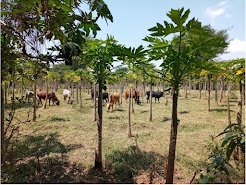JMICAWE has
launched an international survey to explore attitudes towards animal welfare of
veterinarians and researchers in the UK and Japan. The work is led by a
visiting Post Doctoral researcher, Dr Yuki Otani, supported by our Director,
Cathy Dwyer, as a collaborative study between the University of Edinburgh and
Hokkaido University in Japan.
The UK and Japan are both island, industrial and developed nations,
where people live with animals for various purposes – in particular, pet
ownership is an important part of both cultures. In the UK, the principles of
animal welfare and animal welfare needs are included in legislation (The Animal
Welfare Act, 2006). In Japan, on the other hand, people are likely to interact
with animals based on a different Japanese concept rather than animal welfare.
Instead of welfare, a word ‘Aigo’, which is composed of 2 characters (愛 and 護) meaning "love" and "protection”, has been widely and
historically spread in Japanese society. This word is used in the relevant and
the most responsible law for animal management. In this law ‘living being’ is
used to represent all animals, whereas animal welfare is relevant to ‘sentient
beings’ in the UK.
‘Aigo culture is very beautiful – people love and express empathy with
animals. I think, however, this concept is human-based so it could cause
conflicts about what is most important to animals among people depending on their own subjectivity. To solve the issue as a society, permeating
the animal welfare concept is necessary’ says Yuki, from
Hokkaido University.
We are now exploring the fundamental attitude of veterinarians,
veterinary researchers, and behaviour/welfare researchers in the UK or Japan
via an online survey. We would like to understand the strengths of welfare and Aigo
concepts by this survey and develop effective strategies for improving animal
welfare in both countries. More information about the survey can be found here:
https://www.ed.ac.uk/vet/jeanne-marchig-centre/activities/attitudes
Take Part
If you are a veterinarian, veterinary researcher, and behaviour/welfare
researcher in the UK or Japan and wish to take part you can do so by following
this link:
(English) https://forms.gle/9BrdKZovHMbt2WtKA
(Japanese) https://forms.gle/RaamqBZqkV5TE8hv9



